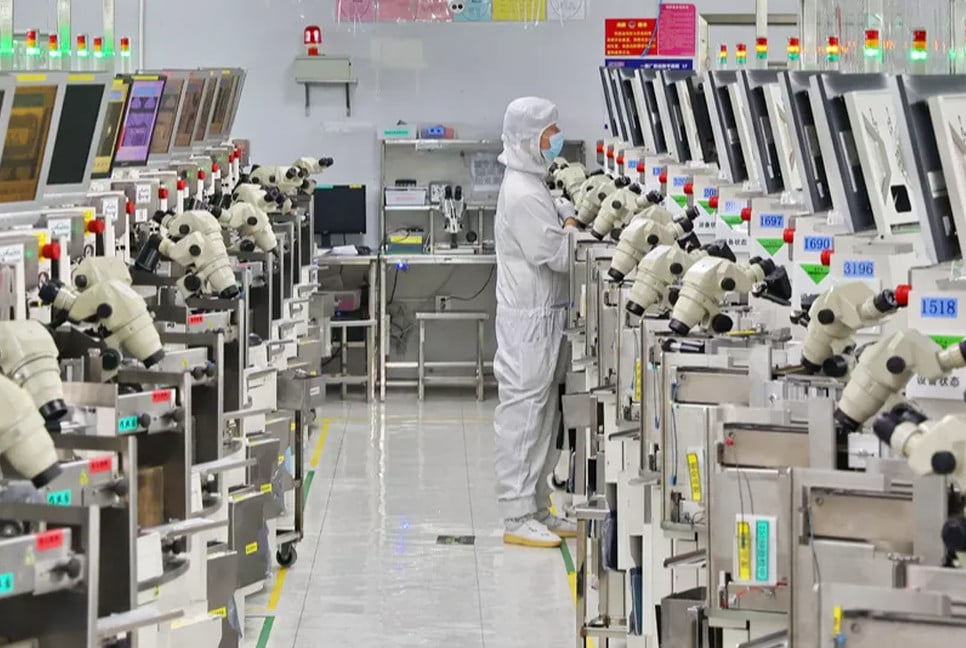China has implemented a ban on the export of key materials crucial for producing a wide range of advanced products, including smartphones, electric vehicles, radar systems, and CT scanners. This action is seen as a retaliatory measure against the United States’ expanded export controls targeting Chinese companies involved in semiconductor production.
Both countries defend their actions as necessary to protect national security, but they have also accused each other of weaponizing trade. Experts warn that these restrictions could have a significant impact on global manufacturing sectors and disrupt supply chains.
A report from the Center for Strategic and International Studies, authored by Gracelin Baskaran and Meredith Schwartz, noted, “Critical mineral security is now intrinsically linked to the escalating tech trade war.” The long-term consequences will depend on how U.S. industries adjust to the loss of access to these vital materials.
China’s ban includes the export of gallium, germanium, and antimony—minerals essential for making advanced semiconductors and high-tech equipment. Additionally, the country has imposed stricter controls on graphite exports, which are crucial for batteries used in electric vehicles and grid storage. As the leading global supplier of these materials, China’s dominance extends to both consumer and military technologies.
Other restricted materials include super-hard substances like diamonds and synthetic composites, which are used in industrial tools, brakes, and protective coatings. Analysts suggest that future restrictions could target materials such as tungsten, magnesium, and aluminum alloys.
These measures by China follow the U.S.’s broadening of restrictions designed to limit China's access to cutting-edge semiconductors and related technologies. The U.S. has added 140 companies, mostly based in China, to its "entity list," enforcing stricter export controls. Commerce Secretary Gina Raimondo explained that these rules are meant to prevent China from utilizing advanced technologies that could pose risks to U.S. national security.
As the U.S. continues to tighten these measures, it is also focused on boosting domestic semiconductor manufacturing and coordinating with allies, including Japan, South Korea, and the Netherlands, all of which have their own export controls.
The materials covered by China’s export restrictions are critical for the production of advanced technologies. Gallium and germanium, for example, are increasingly being used in high-tech semiconductors as alternatives to silicon. These minerals are among 50 identified by the U.S. Geological Survey as “critical” due to their importance in national security and their susceptibility to supply disruptions. Gallium, in particular, is essential for high-bandwidth memory chips, LEDs, lasers, and magnets. Germanium is important for optical fiber and solar panel manufacturing.
A recent U.S. Geological Survey report estimated that disruptions in gallium and germanium supplies could lead to economic losses of over $3 billion. While China stopped exporting these materials to the U.S. in 2023, alternative sources are available, including Japan, which recycles gallium from scrap metal.
In response to these challenges, the U.S. has been advancing its “Minerals Security Partnership” with the EU and 15 other countries to diversify supply chains. Domestically, efforts include tapping into rare earth deposits in various states and increasing recycling programs for germanium. However, China’s cost advantage and environmental concerns over U.S. mining projects remain significant obstacles.
China’s export ban is seen as a strategic escalation in its ongoing trade conflict with the U.S. In response to U.S. sanctions, Beijing has broadened its ban on gallium and other critical minerals to all countries, enforcing legal accountability for violators. This shift in strategy highlights the increasing stakes in the trade war, with profound effects on global industries and supply chains.
Industry groups in China have criticized U.S. export controls, describing American chips as unreliable. This tension suggests a potential turning point in the trade dispute between the world’s two largest economies, with far-reaching consequences for international commerce and technology development.
(Source: UNB)
BD-Pratidin English/Mazdud







































































